#women in tolkien's universe
Text
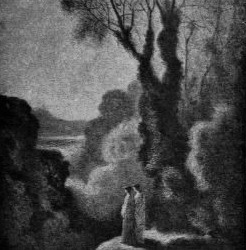
'Fingolfin's wife Anaïre refused to leave Aman, largely because of her friendship with Eärwen wife of Arafinwe though she was a Noldo and not one of the Teleri. But all her children went with their father.'
J.R.R. Tolkien: The Shibboleth of Fëanor. In: Christopher Tolkien, ed.: The Peoples of Middle-Earth. London 1996.
Illustration titled Evening Star published in: Camille Flammarion: Astronomy for Amateurs. New York 1904.
#tolkien#antique book illustration#illustration#literature#quote#camille flammarion#astronomy for amateurs#evening star#The Shibboleth of Fëanor#anaïre#anaire#earwen#eärwen#finarfin#fingolfin#the silmarillion#j. r. r. tolkien#friendship#silm#women in tolkien's universe#women in tolkien's writing#women in silm
6 notes
·
View notes
Text
You don't get it. The point is that HE SEES HER!

Nobody else did. Not even her closest friend. No one. But the d(o)rk lord does. He looks at her and he sees an equal. Someone as strong as him, as powerful as him, as smart as him.

And she likes it! She likes the feeling of BEING SEEN!
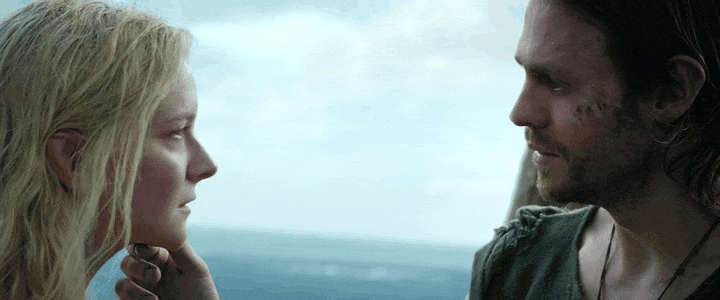
#I'm not saying it's just women#But the 'pain' of not being seen#Listened to and taken seriously#Is a feeling that I think it's universal among women#So it's easy for me to understand why a character like Galadriel may feel drown to Halbrand#Even in Tolkien's canon no one listened to her#Hell#Not even fans sees what his behind her graceful facade#Sadly I have many feeling about Galadriel#the rings of power#lotr rings of power#rings of power#amazon rings of power#trop#rop#saurondiel#haladriel#galadriel#sauron#halbrand/sauron
181 notes
·
View notes
Text

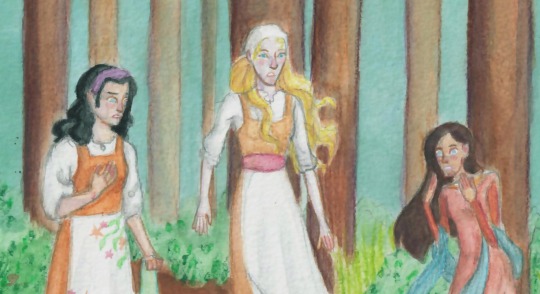
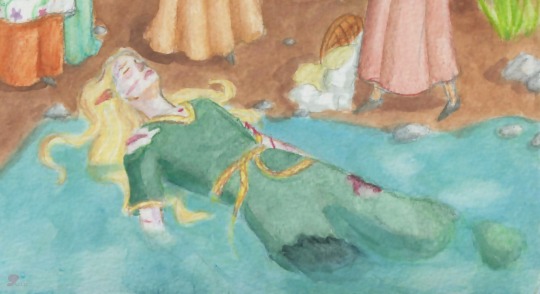
'Tis One Of The Forest Fae
Thranduil & the village women (Tolkien Universe)
TRSB slide #10
Here's my other piece for TRSB (@tolkienrsb) ✨
A banged up Thranduil washes up by the side of a river and frightens a group of village women who are doing their washing.
The OG name of this piece was "'Tis One Of The Forest Fae (whether male or female I do not know)" but even for me that's a bit too much of a mouthful.
I've always been very interested in the idea of Thranduil interacting with humans, I am a SUCKER for cultural differences, especially when elves are really bordering on that "otherworldy" vibes. So I'm so, SO exited for whatever Torpi has been writing, they are a wonderful writer. Thank you for choosing my art friend. You're a treasure.
All that said I'm not sure how to feel about this. Like, it's not bad by any means, I don't think it is at lead. But... I'm not pleased with it. Eh, maybe time will change my mind.
.
Open for Commissions
#Thranduil#Elvenking#village women#lord of the rings#the hobbit#jrr tolkien#tolkien universe#tolkien fanart#watercolor pencils#watercolor illustration#TheRedButterfly#artists on tumblr#traditional art#Tolkien elves#trsb2023#trsb23#trsb23 art#TRSB#tolkien reverse summer bang#tolkien elves#forest#landscape#cw: blood#cw: injury#lotr#thranduil fanart
36 notes
·
View notes
Text
Another Tolkien fact that I often forget:
Three of the Fëanor’s Seven Sons are in fact married: Maglor, Caranthir, and Curufin.
Unfortunately the wives aren’t named and this little info bitty can only be found in The Peoples of Middle-earth, I believe.
Welcome to Middle-Earth where if you are a woman, you are mostly a foot note unless you have some kind of importance.
#the silmarillion#silmarillion#Just three more women to add to the forgotten women of Tolkien’s universe
9 notes
·
View notes
Link
Chapters: 14/37
Fandom: The Lord of the Rings - J. R. R. Tolkien, TOLKIEN J. R. R. - Works & Related Fandoms
Rating: Mature
Warnings: Graphic Depictions Of Violence, Rape/Non-Con
Characters: Original Characters, Original Orc Character(s), Original Haradrim Character(s), Original Rohirrim Character(s), Haradrim, Easterling(s), Orc(s), Goblins (Tolkien), Uruk-hai, People of Lithlad, Mordorians
Additional Tags: Alternate Universe, Alternate Universe - Canon Divergence, Alternate Universe - Middle Earth Setting, Alternate Universe - Dark, Deviates From Canon, Action/Adventure, Trauma, Intrusive Thoughts of Self-Harm, Implied/Referenced Abortion, Slavery, Implied/Referenced Rape/Non-con, tragic backstories, POV Original Character, Travelogue, Heroine's Journey, Third Age, Mordor, Worldbuilding, Alternate Middle Earth History, History of Mordor, History of Gorgoroth, Marriage of Convenience, Minor Character Death, Blood and Violence, Implied/Referenced Homophobia
Series: Part 7 of The Circles of Power
Summary:
Southern Gorgoroth can be a harsh and unforgiving land, yet both Men and Orcs have called this region their home for far longer than the Dark Lord.
The greed of King Thaguzgoth, chieftain of the Kafakudraûg Clan of the Sand Orcs, knows no bounds, and not even Sauron's caravans are safe from his goblin raiders. However, the King would be wise to look to his own household, for there are those who would plot his downfall. When a band of Uruk-hai mercenaries arrive at Kafakudraûg Cavern, this simmering cauldron of intrigue comes to a roiling boil.
One day, Prince Zarkfir will become the chieftain of the Dolrujâtar, a tribe of nomadic sheep and goat herders who dwell upon the plains of Lithlad. Pressured by his family to take a wife, the prince struggles to abide by tradition and follow the desires of his heart. Will he find happiness after a chance meeting with a stranger in the desert?
A tale of adventure set in dungeons deep and sweltering deserts beneath the Sun... in the Land of Treachery.
CHAPTER 14: As Shakh Zarkfir gently interrogates the two women he found wandering in the desert, he feels a growing attraction to Özlem, and longs to learn more about the lovely and talented Haradric beauty.
#tolkien fanfiction#lotr fanfic#lotr alternate universe#ao3 lotr#thecirclesofpower#the number of characters pining for shakh zarkfir is a bit absurd lol#both the men and the women want him#what can i say the man is a stud
1 note
·
View note
Text
There's a lot of discussion about Tolkien's work and feminism, is it sexist, is it feminist, how does the fact that Tolkien's work held feminist themes make sense with the sexist views he expressed in real life, is this plot point regarding a woman sexist or feminist?
And I think the key thing here is remembering that feminism isn't a state of being or a personality trait, it's an action and a thought. A person can both be feminist and sexist. They can hold sexist attitudes and do sexist things and they can also hold feminist attitudes and do feminist things. After all, feminism is complex and the rights of women is a fight on multiple fronts, a war made up of multiple battles.
Tolkien was an upper class white man raised in a time of great sexism, and lived and worked in a sexist environment. He also had a very strong bond with his wife and lived in a time when women's rights and the role of women were undergoing massive changes. His works have far less women in them, and his women often get side-lined and their characterisation/plot relevance are often influenced by sexist tropes (passivity, existing to be a trophy, role defined by make relationships).
At the same time, his female characters can show great heroism, competency and power, and perform feats of heroism in ways that have traditionally been seen as "masculine", showing that a woman being a woman doesn't inherently make her incapable or suited only for certain jobs. And not only that, his characters, like Eowyn, outright call out sexism (all you words say, you are but a woman....you have leave to be burned in the house because the men will need it no more). He also has an in-universe female character speculate on how history has overlooked women, the history he wrote.
Tolkien's attitudes and beliefs would have been influenced by the attitudes and beliefs of his time. He would have grown up in a sexist environment and internalised rigid views about women and femininity and their proper role. He would have also; perhaps subconsciously or despite himself, taken in the feminist arguments women were making at the time, or even noticed himself some of the injustices that women suffered. The man himself didn't need to identify as a feminist to have expressed feminist views. After all, "I'm not a feminist but...." followed by a statement that is definitely feminist, is something we've all seen at some point.
There's also the badass, wonderful Haleth, who was originally conceived as a man, only to be changed into a woman by Tolkien later on. Perhaps he himself noted, as his own characters did, that women had been overlooked in his work. Just as the world around him changed and attitudes towards women adjusted, it is possible that Tolkien's did too. There would have been a difference in what was conservative in the year he was born and what was conservative in the year he died.
So, are Tolkien's work sexist? Yes. Are his works feminist? Yes. Are his female characters sexist? Yes. Are his female characters feminist? Yes.
We can read Tolkien's work and find feminist messages and be uplifted by them. We can also read Tolkien's work and criticise the sexism that is at play.
754 notes
·
View notes
Text
Common character archetypes in literature
Character archetypes are universal patterns of behavior, personality traits, and motivations that are commonly found in literature, mythology, and other forms of storytelling. They are often used as a shorthand to help readers quickly understand and relate to a character's role and purpose in the story.
Here are some common character archetypes:
The Hero: The hero is a brave and noble character who goes on a quest or journey to achieve a goal or overcome a challenge. Examples of heroes include Odysseus in Homer's "The Odyssey" and Frodo in J.R.R. Tolkien's "The Lord of the Rings."
The Villain: The villain is an evil character who opposes the hero and tries to prevent them from achieving their goal. Examples of villains include Darth Vader in "Star Wars" and Iago in Shakespeare's "Othello."
The Mentor: The mentor is a knowledgeable and seasoned figure who directs and encourages the protagonist throughout their adventure. Examples of mentors include Gandalf in "The Lord of the Rings" and Obi-Wan Kenobi in "Star Wars."
The Trickster: The trickster is a mischievous character who uses their wit and cunning to achieve their goals. Examples of tricksters include Loki in Norse mythology and Hermes in Greek mythology.
The Damsel in Distress: The damsel in distress is a female character who requires saving from a hero. Examples of damsels in distress include Princess Peach in the Mario video game series and Sleeping Beauty in the fairy tale of the same name.
The Wise Old Man/ Woman: The wise old man or woman is commonly portrayed as having immense wisdom and expertise, and often acts as a mentor or guide to the protagonist. Examples of wise old men and women include Dumbledore in the Harry Potter series and the Oracle in Greek mythology. Such archetypes have been frequently employed in literature over time to communicate universal themes and concepts about human existence.
The Innocent: The innocent is a pure and uncorrupted character who often serves as a symbol of hope and goodness. Examples of innocents include Dorothy in "The Wizard of Oz" and Boo Radley in "To Kill a Mockingbird."
The Outcast: The outcast is a character who is rejected by society and often feels a sense of alienation or isolation. Examples of outcasts include Frankenstein's monster in Mary Shelley's "Frankenstein" and Hester Prynne in Nathaniel Hawthorne's "The Scarlet Letter."
The Temptress: The temptress is a seductive female character who lures men into danger or temptation. Examples of temptresses include Circe in Greek mythology and the character of Delilah in the Bible.
The Scapegoat: The scapegoat is a character who is blamed for the problems or issues of others. Examples of scapegoats include Tom Robinson in "To Kill a Mockingbird" and Piggy in "Lord of the Flies."
The Rebel: The rebel is a character who challenges authority and often advocates for change. Examples of rebels include Winston Smith in George Orwell's "1984" and Holden Caulfield in J.D. Salinger's "The Catcher in the Rye."
The Everyman: The everyman is a relatable character who represents the average person and often serves as the protagonist in a story. Examples of everymen include Bilbo Baggins in "The Hobbit" and Winston Smith in "1984."
The Wise Fool: The wise fool is often portrayed as someone who appears to be simple-minded, foolish, or even insane, but who possesses insights and wisdom that are not immediately apparent to others. Examples of the wise fools include the protagonist in "Diary of a Madman" and Yorick in "Tristram Shandy".
The preceding list outlines the typical character archetypes found in literature. Can you determine which archetype best fits your characters?
If you want to read more about The Wise Fool archetype, click here: The Wise Fool - Who is that?
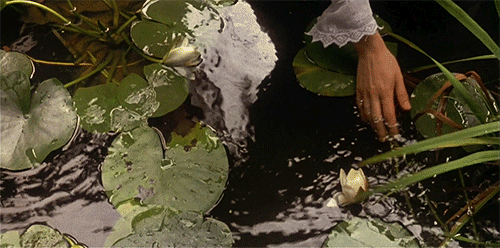
#creative writing#writing#writer things#writerscommunity#writeblr#own character#on writing#writersociety#writing community#writers#writetip#writing tips
712 notes
·
View notes
Text
One thing that struck me as interesting recently is the almost unreasonable trust people have for ChatGPT.
Recently, I ran across a Youtube video where the creator was talking about how she asked ChatGPT this and that and how convenient it was. This was strange to me as a simple Google search is able to do the same thing.
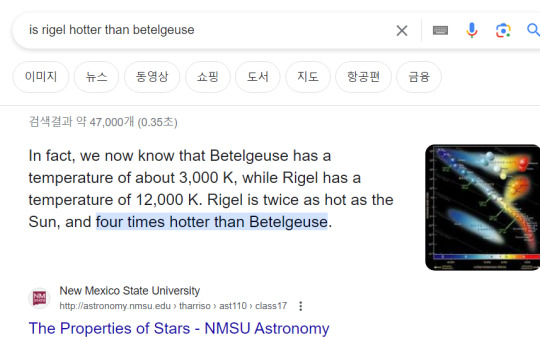
For example, this is what I get when I search a question "Is Rigel hotter than Betelgeuse?" Google tells me that indeed Rigel is hotter than Betelgeuse. It also tells me that the info comes from the New Mexico State University website which I'd say is pretty trustworthy. So I don't see how using ChatGPT to ask such questions is easier or faster.
But there is a difference--that difference being that with ChatGPT, you're being "told" the information. Basically, you feel more catered to. When you use Google search, you feel like you're foraging for information. When you use ChatGPT, you feel like you have an assistant. There is a feeling of having something mysteriously intelligent answering your question for you.
I've also seen people who post delighted screenshots of ChatGPT telling them something they wanted to hear whether it's a snarky remark about their ex-boyfriend or a smart-ish commentary on sexism. People are free to find enjoyment in anything as long as it doesn't hurt other people, but what I found so interesting was how happy these people were that it was ChatGPT that told them this or that. It's one thing to feel happy and encouraged by a specific engineer you admire saying that she wishes for a future where more women enter STEM, but why does it matter if a machine-learning algorithm spews out a sentence--probably synthesized from millions of words it scraped from people who said something similar--that you like? How is it more meaningful than, say, a fortune you randomly drew?
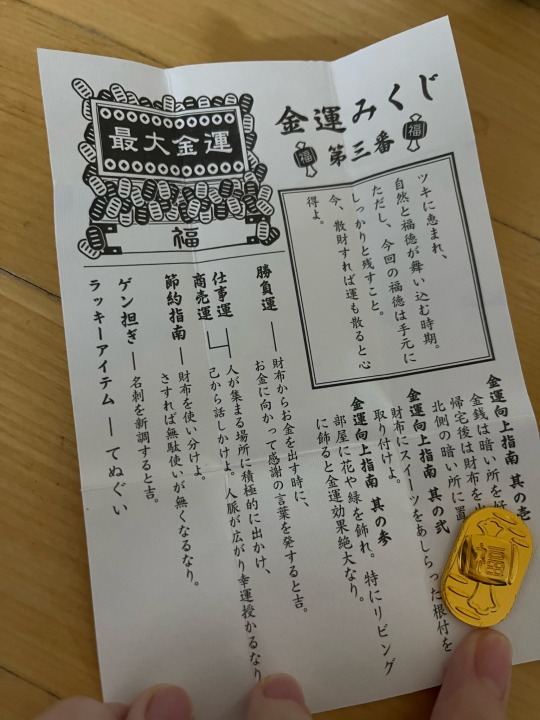
Here's fortune that I drew. It's from Kanda Shrine if I remember correctly. It says I'm very lucky moneywise. My friend made fun of me saying that the fortune was correct because I didn't find any merch I wanted on that day which meant I spent much less than I planned to. Anyway, ChatGPT saying whatever means no more to me than a random fortune I can buy from a shrine. I'd even say it means less than a fortune from a shrine since a shrine at least has some cultural significance. Also, it might mean something for spiritual people (Perhaps ChatGPT fans are techno-spiritual?)
My conclusion is that we shouldn't let techbros fool us into thinking that these algorithmic tools are intelligent in any capacity. The language surrounding these tools treat them as though they're independent, intelligent entities which they're not. I know a lot of my followers--you Tolkien fans--are passionate about language, so you'd know what I'm talking about. Language is a powerful tool. Right now, it's being used to mask the theft and lies of these tech capitalists. But we shouldn't let ourselves be fooled.
110 notes
·
View notes
Text
Ok, I said in this post that I wanted to talk about POV and what different characters would use for their species; I've been thinking about it for a while, because it's important to me to portray Elves as thinking of themselves as the default and I like having them think of mortals as different, as a way of worldbuilding and establishing POV. It's the same basic principle as why I think the War of the Elves and Sauron is a Númenórean name, not an Elvish one.
In brief: man and woman can and should be used to refer to Elves when writing from an elven POV.
I think about markedness a lot when I think about writing generally, and one of the concepts is that there are things that are unmarked, the standard, the default, the normal, the unexceptional. To an elf, the default species is elf, not human or dwarf or ent. I want to write from that POV - to an elf, humans are different, even alien. They're other. Elves are us, humans are them.
I, meanwhile, am writing in English, and man and woman are common words, the most "unmarked" words for the concepts; they're standard (e.g., woman sounds more normal than female human). Something like elf woman or female elf is more marked. Why would an elf use a more marked term to refer to their own race? Using she-elf or whatever for Elves but woman for humans uses more marked words (more uncommon, more specific, etc) for elves than it does for humans - but for elves, it should be the opposite! Elves are unmarked! Elves are default! Humans are different. If an elf is talking about someone, the default assumption would be that the someone is an elf, so if they're not an elf, it would be specified.
So when writing from the POV of an elven character, I would use woman for a female elf and mortal woman for a female human (if necessary to disambiguate). Man, meanwhile, means "Human" when it's capitalized and male when it's not. (Now, if I were writing from a human or dwarven pov, I would use elven woman, if necessary to specify that she's an elf.)
But, you say, what about using Elvish words? Well, first of all, I hate it. We're not writing in Quenya. English is great, and so are the other human languages people use to write fanfic. But that is a subjective matter of taste and you may disagree! Nothing wrong with that, de gustibus, etc.
More objectively, nér and nis are not words specific to Elves; nér means all males, so using it for specifically elf men and not human and dwarven men is incorrect (to quote Elfdict, "Nér can be used regardless of species and so is equally applicable to male Elves, Men, or Dwarves, but is unlikely to be used of male animals, for which the word [ᴹQ.] hanu is more applicable."") (Sindarin is a little more complicated, given the more complex out-of-universe changes, but it too has race-neutral terms for man and woman.)
Lastly, Tolkien himself uses man and woman to refer to non-human species. He calls Galadriel and Finduilas women, and Aredhel is "taller than a woman's wont." Earendil is a man (though he is not a Man) and Curufin is a horseman and there are lots and lots of kinsmen and kinswomen. Hobbits meanwhile, in Appendix F, have "women" and "man-children" (Tolkien is talking about how Hobbits name babies, thus the children part, but I like to think he's getting one more dig in at Pippin).
#meta#linguistics#writing#imo it's breaking pov to use 'man and woman' only for humans when writing from an elven or dwarven pov#the only time Man/Men means human is when it's capitalized#thanks to polu and aipi for examples of tolkien using 'man' and 'woman' to refer to non-humans#also man and women are great! i'm not going to abandon such useful words
124 notes
·
View notes
Text
Words Of Wisdom (Jupiter Edition)
Jupiter represents knowledge, wisdom, and spiritual growth. Its placement in a chart can indicate a person's natural ability to learn, their willingness to seek out new experiences and ideas, and their ability to integrate different perspectives and worldviews.
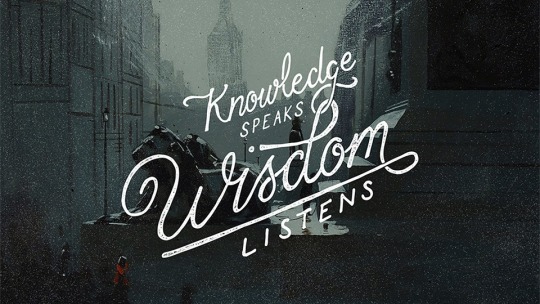
Here are some iconic book quotes that I feel represent the energy of someone Jupiter placements (sign or house) in their natal chart.
Jupiter in Aries or 1st House: "It is not in doing what you like, but in liking what you do that is the secret of happiness." - J.M. Barrie, Peter Pan. This quote represents the enthusiasm and energy of Jupiter in Aries/1st House, which encourages a sense of self-discovery and taking bold action. It emphasizes that happiness comes from finding joy and fulfillment in one's pursuits rather than simply pursuing pleasure.
Jupiter in Taurus or 2nd House: "The world is full of magical things patiently waiting for our wits to grow sharper." - Bertrand Russell, Mysticism and Logic. This quote reflects the practical and grounded nature of Jupiter in Taurus/2nd House, which values stability, material security, and the power of the senses. It encourages a slow and steady approach to expanding one's horizons and appreciating the beauty of the world around us.
Jupiter in Gemini or 3rd House: "It is a truth universally acknowledged, that a single man in possession of a good fortune, must be in want of a wife." - Jane Austen, Pride and Prejudice. This quote represents the curiosity and communicative nature of Jupiter in Gemini/3rd House, which is all about gathering information, sharing ideas, and engaging with the world around us. It highlights the power of words and conversation in shaping our perceptions and relationships.
Jupiter in Cancer or 4th House: "Home is behind, the world ahead, And there are many paths to tread Through shadows to the edge of night, Until the stars are all alight." - J.R.R. Tolkien, The Lord of the Rings. This quote reflects the emotional depth and nurturing nature of Jupiter in Cancer/4th House, which is all about finding a sense of belonging and security in our homes, families, and traditions. It emphasizes the importance of finding our own path in life and the power of imagination to guide us on our journey.
Jupiter in Leo or 5th House: "All the world's a stage, And all the men and women merely players; They have their exits and their entrances; And one man in his time plays many parts." - William Shakespeare, As You Like It. This quote represents the creative and theatrical nature of Jupiter in Leo/5th House, which encourages us to express ourselves boldly and authentically. It highlights the power of play, drama, and self-expression in shaping our identities and leaving a lasting impact on the world.
Jupiter in Virgo or 6th House: "In the end, we will remember not the words of our enemies, but the silence of our friends." - Martin Luther King Jr., Strength to Love. This quote reflects the analytical and service-oriented nature of Jupiter in Virgo/6th House, which is all about finding practical solutions to problems and improving the world around us through diligent effort. It emphasizes the power of empathy, compassion, and collaboration in achieving our goals and making a difference in the world.
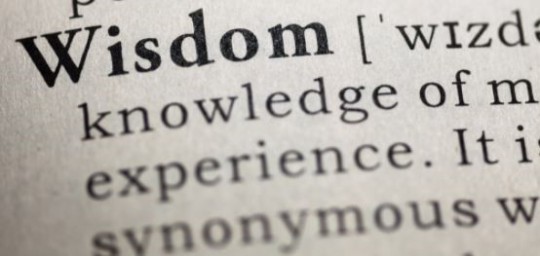
Jupiter in Libra or 7th House: "It does not do to dwell on dreams and forget to live." - J.K. Rowling, Harry Potter and the Sorcerer's Stone. This quote represents the social and diplomatic nature of Jupiter in Libra/7th House, which values harmony, justice, and balance in our relationships and interactions with others. It emphasizes the importance of taking action and finding a healthy balance between our ideals and the realities of our lives.
Jupiter in Scorpio or 8th House: "The greatest glory in living lies not in never falling, but in rising every time we fall." - Nelson Mandela, Long Walk to Freedom. This quote reflects the transformative and intense nature of Jupiter in Scorpio/8th House, which is all about confronting our fears, embracing change, and gaining a deeper understanding of ourselves and others. It emphasizes the power of resilience, determination, and the willingness to learn from our mistakes in achieving personal growth and success.
Jupiter in Sagittarius or 9th House: "Not all those who wander are lost." - J.R.R. Tolkien, The Lord of the Rings. This quote represents the adventurous and expansive nature of Jupiter in Sagittarius/9th House, which values freedom, exploration, and the pursuit of knowledge and wisdom. It encourages us to embrace the unknown, take risks, and follow our dreams, trusting that the journey itself will lead us to new discoveries and experiences.
Jupiter in Capricorn or 10th House: "It does not matter how slowly you go as long as you do not stop." - Confucius, The Analects. This quote reflects the disciplined and ambitious nature of Jupiter in Capricorn/10th House, which is all about achieving success and recognition through hard work, perseverance, and strategic planning. It emphasizes the importance of patience, determination, and the willingness to overcome obstacles and setbacks in achieving our goals.
Jupiter in Aquarius or 11th House: "Be the change you want to see in the world." - Mahatma Gandhi. This quote represents the progressive and innovative nature of Jupiter in Aquarius/11th House, which values individuality, freedom, and the power of collective action to create positive change in the world. It encourages us to think outside the box, challenge the status quo, and work together to make the world a better place.
Jupiter in Pisces or 12th House: "I have been bent and broken, but I hope, into a better shape." - Charles Dickens, Great Expectations. This quote reflects the compassionate and spiritual nature of Jupiter in Pisces/12th House, which values empathy, intuition, and the power of imagination to transcend boundaries and connect us to the divine. It emphasizes the importance of embracing our vulnerabilities and flaws, trusting in the power of redemption and renewal to guide us towards a brighter future.
Stay tune for more astro posts…
xoxo
J.
#astro posts#astrology posts#astro community#horoscope#astrology#astrology notes#astro placements#astro notes#astrology community#birth chart#aries jupiter#taurus jupiter#cancer jupiter#gemini jupiter#leo jupiter#virgo jupiter#scorpio jupiter#sagittarius jupiter#aquarius jupiter#pisces jupiter#libra jupiter#capricorn jupiter#1st house jupiter#2nd house jupiter#3rd house jupiter#5th house jupiter#4th house jupiter#6th house jupiter#7th house jupiter#8th house jupiter
180 notes
·
View notes
Text
So I’m just gonna say it. Finwe had 15 grandchildren and only two of them are female? Statistically it’s possible but come on, the odds are staggering. The Doylist explanation of this of course is good old fashioned gender roles, the Finweans were all extremely important and powerful, also mostly warriors and leaders, so Tolkien probably didn’t want to write too many of them as women. You know, he wanted these to be main characters. Tolkien doesn’t really seem to want to write many women at all which is a pity because the ones he did write were amazing.
The Watsonian explanation however is a lot more fun. Because I tend to believe that in universe a lot of them were actually female and a few transmasc as well and that some mortal historians along the line took one look at their story and thought ‘well this was clearly a warrior so they must be male,’ and they don’t really question it too much because Elvish names? Really androgynous (Maedhros? Caranthir? Laurefindel?!). So all of a sudden people are reading about the seven sons of Feanor and High King Fingon. And they read about trans and genderqueer elves and they can’t figure out the pronouns but then they read about them leading people into battle and they immediately go ‘oh, ok this one’s male too, I was confused for a bit.’ Ironically this is really affirming for the transmascs.
So it actually was a pretty even distribution of AMAB and AFAB grandchildren of Finwe but they all gradually got turned into guys by history. The ‘sons’ of Feanor too, I mean seriously who has seven sons and no daughters. Also in what universe are Maglor, Curufin and Caranthir cis men? Not mine. Finrod is genderqueer (oh wait, that’s just canon). Maedhros and Fingon were gnc lesbians.
#silmarillion#tolkien#Shitpost#finweans#finwean family drama#Genderbending#genderqueer#lesbian#sons of feanor#maedhros#maglor#celegorm#Galadriel#aredhel#caranthir#curufin#trans#finrod#fingon
148 notes
·
View notes
Text
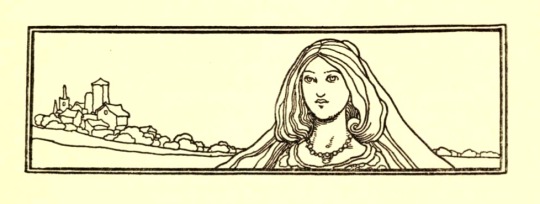
Morwen of Lossarnach, also called Steelsheen, descended from the Princes of Dol Amroth and became Queen Consort to King Thengel of Rohan. Unfortunately Tolkien doesn't say much about her.
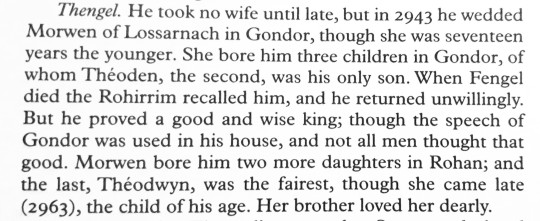
Besides this quote Tolkien writes that Éowyn bears a resemblence to her grandmother Morwen and their shared Gondorian ancestry.
J.R.R. Tolkien: The Lord of the Rings, Appendix A, the House of Eol.
Illustration by W. Heath Robinson.
Published in: The Poems of Edgar Allan Poe. London/ New York 1900.
#tolkien#j. r. r. tolkien#lotr#the lord of the rings#quote#thengel#morwen of lossarnach#morwen steelsheen#lotr appendix a#gondor#eowyn#w. heath robinson#illustration#rohan#house of eol#women in lotr#women in tolkien's writing#women in tolkien's universe
6 notes
·
View notes
Text
Textual significance of Morwen being accused of witchcraft
Aka the essay draft I’m posting earlier than I should be because I wanted to post this on my birthday
my tag for this topic is word ran among them where there are way too many posts. I’ve written at length about the implications in universe and real life connotations but here are some thoughts on why Tolkien chose to include this detail in The Silmarillion and The Children of Húrin
This is my first draft of this, written as bullet points. I’m going to make a more essay style version with more sources. Pretty much all of these I have posts about, and as I said, I’m very fixated on this topic so I’m definitely looking forward to elaborating a lot of this
I actually have studied the history of witchcraft accusations and their sociopolitical contexts for years and I’m so happy it’s going to such great cause :/
cw: discussion of misogyny both in universe and historical
It’s also worth mentioning that while these accusations didn’t exist in the very first drafts of The Children of Húrin, such as the book of lost tales version, they exist in pretty much every version that Morwen herself exists in as Morwen (that is, not in the book of lost tales versions or versions of The Lay where her name is different)
-It makes Morwen’s situation precarious when her survival is needed for the plot and the doom; she’s hated and feared and shunned but not directly attacked due to that fear. She’s alive but in danger, poverty and isolation.
It also puts the reader in fear for her. Good things do not happen to women who are accused of witchcraft
Witch hunts and witch trials are events that bring cruelty, paranoia and betrayal. The invoking of this adds to the bleak atmosphere of post Nírnaeth Hithlum. The phrasing, “word among them” or rumor ran among them, depending on the version , adds to this atmosphere of paranoia and whispers, and not knowing who to trust.
-It highlights the regressive beliefs of her accusers*. and emphasizes certain aspects of Morwen’s character. Morwen is very clearly not a witch. She is however a severe and intelligent woman who canonically challenges the men around her.
She’s also presumed to be a widow. Historically, especially when women were thought to be the property of their husbands, it has often been unmarried women and widows who were persecuted as witches*
The exact reasons given in the text are somewhat vague. “But so great was the beauty and majesty of the Lady of Dor-lómin that the incomers were afraid and whispered among themselves that she was perilous and a witch skilled in magic”, “proud and fair as a queen she was…Witchwife they called her and shunned her”. These descriptions alongside other descriptions of Morwen’s personality and countenance can easily track with commonalities among women who have historically been accused; she is fiercely independent, blunt in her words and proud.
“These were women given to speaking out, to a bold tongue and independent spirit. It is no surprise that such unwelcome, even feared speech, could be mistaken for wicked enchantment”Mona Chollet wrote in a recent nonfiction book on the history and legacy of witch hunts.
-Morwen specifically being related to the elves (“he had thought that he looked in the fell eyes of an elf”, “word ran among them that she was perilous and a witch who had dealings with the elves”, “Witchwife it is but elf friend in the new language”) also is used to show how deeply Melkor has managed to turn human and elven populations against each other
I cannot say if Tolkien intended this but this aspect mirrors a common theme in witch hunts historically. I talked about this before but many if not most accused women were accused of either obtaining their alleged powers through communion with non humans or otherwise engaged with them.
I have…way too many posts about this specific connection
-I also definitely want to do more about what exactly the lore is for witches in first age Beleriand, what it’s believed they are and what it’s believed they can do
-Morwen being feared by the occupiers mean that she is largely left alone by them. She’s still suffering, we know there were times that she and Niënor nearly starved, and its implied she faces harassment and intimidation but despite the doom on Húrin’s family, she is able to resist being driven from Hithlum for decades.
Morgoth canonically sews dissent, mistrust and prejudice. The prejudice of the occupiers here has the potential to interfere with Morgoth wanting to use Húrin’s family to hurt him. This fits neatly into Tolkien’s themes of evil hindering itself.
-It highlights her as a cultural outsider. It is specifically Morwen, a refugee and exile who is accused of having sinister powers and alliances with an enemy. I think this is especially interesting because, in the earlier version of The Children of Húrin, the occupiers were comprised largely of men from Hithlum
-It adds to the power of her character and makes parallels with other confrontations and struggles with villains that members of her family have. It’s easy to parallel for example the lines about Húrin not being daunted by Morgoth’s eyes or Niënor staring down Glaurung with the encounter between Morwen and Brodda. And while it is true that he might not be quite as powerful or dangerous as Morgoth or Glaurung, if he kills or hurts her, she’s going to be just as dead or traumatized as she would be if he were a god or dragon. Her courage is extraordinarily powerful and harrowing. Does this make sense?
Anyways happy birthday to me, thank you for reading all of this and for your patience with my rambling which I have done so much of on this topic and will continue to do more of
End note: I wanted to add another note about how the position Morwen is in can also be used to show Aerin’s bravery in helping her; Aerin takes great risks to help her people and the danger she faces for her aid to Morwen is even more extreme; she faces extreme physical abuse for it. But I have several posts about this already and I think it deserves its own post
Sources
Fearless Wives and Frightened Shrews: The Construction of the Witch in Early Modern Germany
Mona Chalet, Stacy Schift
#the silmarillion#the children of húrin#morwen#word ran among them#musing and meta#dropping in to post this before rushing back to work#Aerin#cw abuse#(bc of note at the end)#occupation of hithlum
55 notes
·
View notes
Text
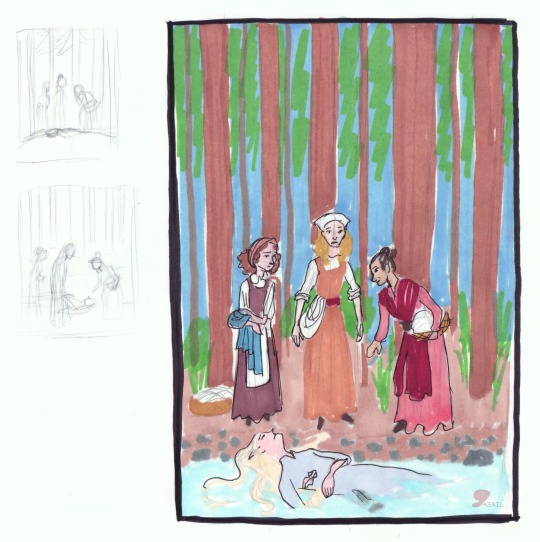



These are designs, sketches and tests I did for my piece 'Tis One Of The Forest Fae for TRSB.
Again, the design of Thranduil's clothe's was my favourite part of this process XD I am NOT surprised. JUST LOOK AT HIM! He's so gorgeous displaying his robe 😭
But also, designing the girls was pretty fun. Though two of them went through a LOT of changes. For example Haeddi? She was meant to be an old woman!! But honestly, the two girls who changed the most ended up being my favourites so that's lovely 🙏🏼
I am SO EXITED for Torpi 's work!! They are so smart and I'm so hyped to read their dialogue, the little bits I've seen are so *clenches fist* fucking good. They're making the village women speak in Shakespeare english.
.
Open for Commissions
#Thranduil#Elvenking#village women#lord of the rings#the hobbit#jrr tolkien#tolkien universe#tolkien fanart#watercolor pencils#TheRedButterfly#artists on tumblr#traditional art#Tolkien elves#trsb2023#trsb23#trsb23 art#TRSB#tolkien reverse summer bang#tolkien elves#forest#landscape#lotr#thranduil fanart#markers#character design#sketches
33 notes
·
View notes
Note
hello. I am in the middle of doing My Take on vampires and would appreciate your thoughts on Them in fiction. they don't seem to pop up more than occasionally in superhero media, but also you are pretty widely read & they have noticeable Eras/Tendencies that I can see.
I'm definitely not as much of a vampire guy as I'm a Superhero guy, so all my opinions on vampires should be taken with a grain of salt, and with the knowledge that a lot of this is stuff I've picked up through Osmosis and the occasional lit-review for that one class in college. But here goes-
One of my potentially more controversial takes about Vampires is that I think Vampires (and adjacent creatures like werewolves) are great at capturing the emotional truth of being part of a marginalized group, or sometimes just for being subaltern- the world against you, people make you feel like you're wrong for existing, that you're dangerous, etc.- and this is why they go gangbusters both on this website and in general. But the narrative often faceplants for me if it tries to portray vampires as a literal marginalized group because all of that stuff is often objectively true within the fiction in a way that it isn't true of real-life marginalized groups. It's a souped-up version of the X-men problem, because most of the X-Men aren't obligate cannibals! The result of this is that there have been several times I'm consuming something vampire-related that wants me to primarily sympathize with the vampires, and meanwhile I'm going "geez, that's a rough deal, but I think you all need to be killed on purely utilitarian grounds, sorry."
(I do also get the sense as well, right, that this is inextricably tangled up in the fact that a lot of foundational vampire literature was kind of just taking a lot of the horrible lies people tell about the scapegoat group du jour to justify their oppression and then making a guy of whom these things were objectively true. I get the impression, at a distance, that Dracula demonstrates like fourteen different flavors of "Those Depraved Easterners Are Coming For Our Women," although to truly lock in that Take I'm gonna have to read the thing instead of just absorbing it through Tumblr Osmosis whenever Dracula Daily is running.)
There are ways to thread this needle, the big one of which is to just sand down the negative externalities of vampirism. Have them feed on animals or voluntary donors or make the human predation thing an in-universe slanderous fiction to begin with. Have them feed on exclusively on quote-unquote "criminals," if you have the right unexamined assumptions about the validity of the death penalty. Go the Elder Scrolls route, where drinking blood isn't necessary to survive but is necessary to maintain a human appearance, thus ensuring that the most morally conscientious vampires are the ones most likely to be identified as vampires and scapegoated by the angry mob. The issue I sometimes take with this is that the act of implementing a "fix" of any kind can sort of broadcast that you're trying to have your cake and eat it too- that you're cutting away the ideatic core of what makes vampires interesting when divorced from metaphor, taken objectively- that they're living trolley problems. As others have said, if you sand them down too much, what are you getting out of a vampire story that you couldn't get from a Tolkien Elf, or from Batman?
A fictional group which I've never really had this issue with, though, is Zombies, in the Romero tradition. When a work wants to construct Zombies as a primarily sympathetic group, it's much easier for me to get on board with that without feeling like the core Vibe has been compromised. This is because there's actually a fairly recent source text for zombies in the form of Romero's Living Dead films, and a major component of the Living Dead films is how much it sucks without recourse to become a zombie.
I was working on a post once, which I never finished, about how there are like, three-to-four vectors of horror that zombies can embody, which different works play up to different extents. While obviously one of the big straightforward ones is the fear that your entire community starts trying to kill you and eat you one day for basically no reason, a major anxiety on display in the original Living Dead trilogy- Dawn in particular- is that in the face of a weird but manageable problem human society would act as its own condemnation, totally failing to rise to the challenge-the horror is that we would let something as inept as a zombie be dangerous to us! Also present in those films? The horror of the idea that your daily routine is so rote and conformist that you wouldn't need to be sentient to continue to carry it out- that the biggest difference between you and them is that you can occasionally be evil in more interesting and evolved ways. And there's this fear of physically and mental degradation with zombies, which for a host of reasons I find extremely fucking relatable. The sense that your body is falling apart piecemeal, bits of you sloughing off when you turn the wrong way or turn your head too quickly. There's this fog over your thinking. The bone-deep knowledge that you used to be more, and are now fundamentally less capable- that there's just enough of you left to understand something is missing. (Read into my personal circumstances whatever you want from this.) Being a zombie is foundationally, fundamentally gross in a way that being a vampire isn't; when people try to do "sexy zombies" half the joke is the pairing of those two words. There's this horror comic Kieth Giffen did once called Tag which is basically entirely about the horror of being a corpse that could feel it; I think about that comic a lot.
Anyway, because so much of the horror of zombism is external to whether they're actually attacking and killing people or not, you can totally sell me on zombies as an unfairly-maligned demographic in a way that's much harder for me to buy with Vampires- dropping the danger they pose to other people allows you to maintain so much more of the core of the thing than it does with Vampires, where it feels much more like you're tip-toeing around the tensions between Wanting To Have Fun and the moral horror inherent to what you're trying to have fun with.
#sorry for hijacking your ask to talk about zombies!#not sorry enough to not do it obviously#ask#thoughts#meta#vampires#zombies#untitled zombie project#night of the living dead
62 notes
·
View notes
Text
There was this very bizarre coincidence that made quite a funny story...
It was two or three years ago I think, I can't recall very well. But I heard two times, a few days apart, two women discuss Tolkien. Except one group were university students who were waiting by the same hallway I myself waited in because I had an oral presentation to give ; and the other was two clients of a bookshop that talked as they checked out the books.
And both duos talked about Tolkien. More specifically, both duos talked about their love and passion for "The Lord of the Rings", and then quickly criticized and rejected another book of Tolkien. But the two groups had precisely polar opposite opinions.
One of the two clients of the bookshop explained to other how they loved The Lord of the Rings but couldn't possibly get past the few first chapters of "The Hobbit" - saying how childish and ridiculous it all was, and making a joke about the silly names of the dwarves.
But one of the two students in the hallway explained to the other that, on the contrary, it was the SILMARILLION that was the ridiculous and hilarious book she couldn't possibly get past with - and she notably pointed out how the various transformations of the sun and the moon (It was a tree, then it was some boat dragged in the sky by ropes, and then it was some sort of lamp or I can't recall very well). The other student did point out at one moment "Yeah, but... if it's trying to be like the old myths, it is bound to be a bit weird". The other agrees - but not very heartily, and more to keep on saying "Yeah, so that's just a hilarious and silly book".
Truly fascinating how people can have the same opinion onto very different books ; or how one situation can be easily reversed onto the same subject
43 notes
·
View notes